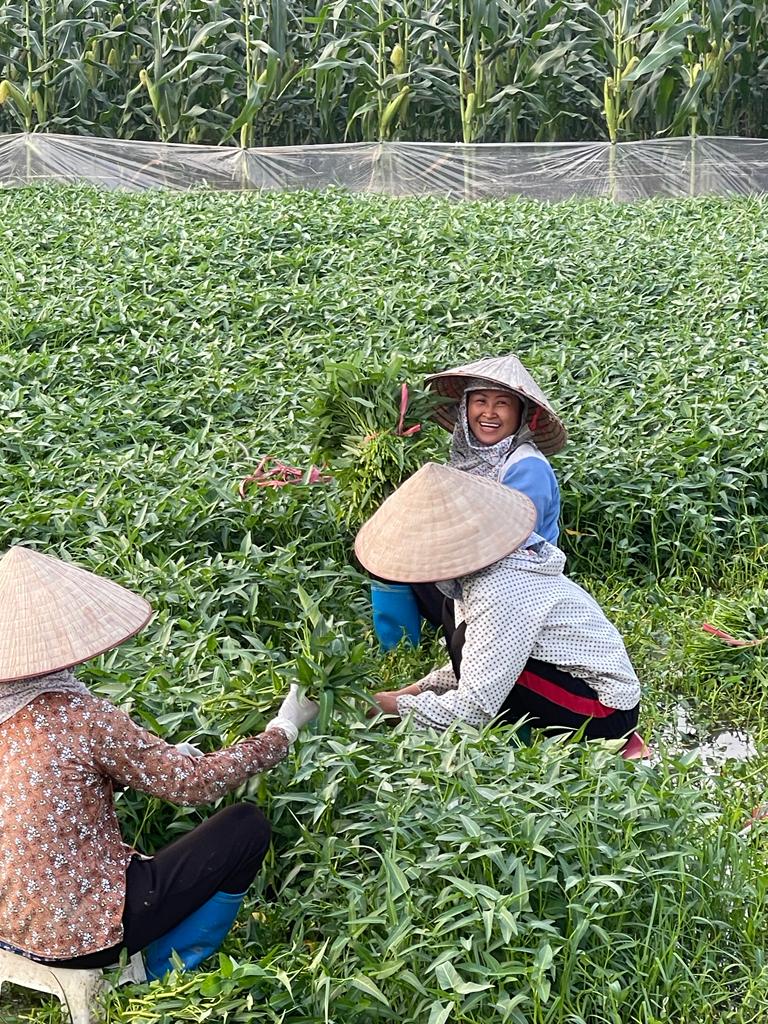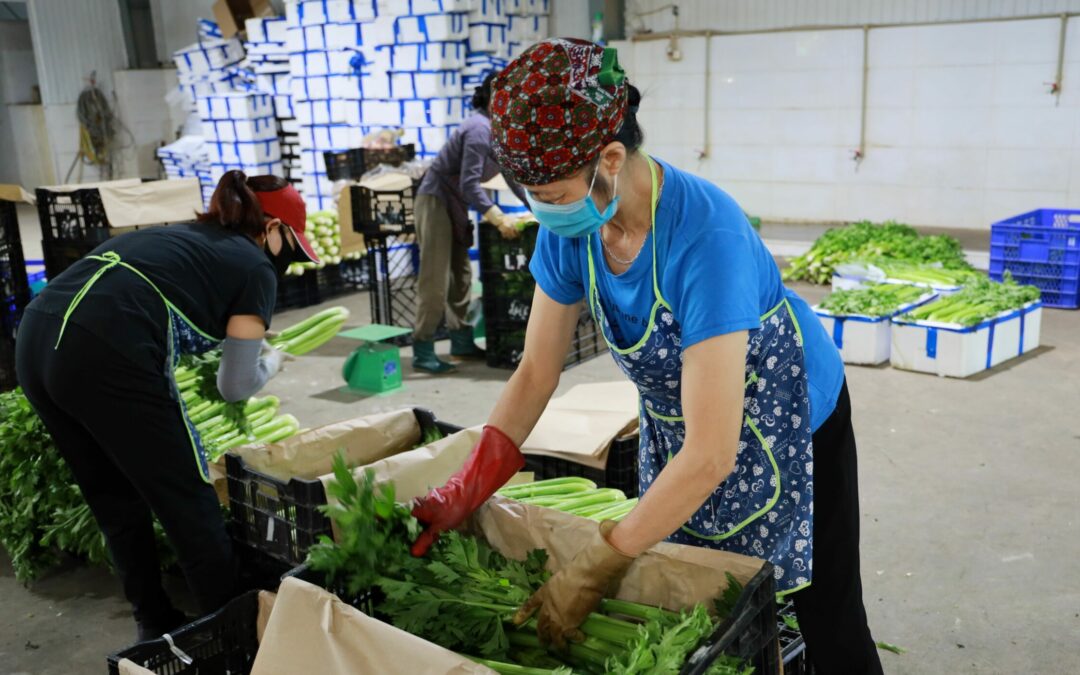Supporting International Food Safety Day – Every day of the Year!
Safe food is a primary determinant of human health, well-being and food security. Many communities are unable to exercise the right to safe food and may suffer from foodborne diseases (FBD) which compromise public health and development. Unsafe food containing harmful levels of bacteria, viruses, parasites, chemical or physical substances can cause acute or chronic illnesses – including more than 200 diseases ranging from diarrhoea to permanent disability or death. An estimated 600 million people fall ill from FBD annually resulting in up to 420, 000 deaths. Low- and middle-income countries (LMIC) are most affected, with an annual estimated cost of US$110 billion in productivity losses and medical treatment costs due to the consumption of unsafe food.
Alinea International, together with the University of Guelph and other Canadian and international partners, is involved in several projects specifically designed to mitigate food safety risks in Vietnam and Central Asia (Kazakhstan, Kyrgyzstan, Tajikistan, Turkmenistan and Uzbekistan). While these projects have a specific geographical focus, they have a global impact by aligning with international best practices. The focus on food safety reaffirms the interdependence among health and well-being, nutrition, food safety and food security in achieving the SDGs. Food safety is integral to the realisation of the SDGs, especially SDG 2 (Zero hunger), SDG 3 (Good health and well-being), SDG 8 (Decent work and economic growth) and SDG 6 (Clean water and sanitation) which is a cornerstone of food safety, among others.
The Safe Food for Growth project (SAFEGRO), funded by Global Affairs Canada and implemented by Alinea, seeks to enhance the Vietnamese population’s access to safe, affordable and competitive agri-food products, with an aim to improve the wellbeing of consumers as well as other agri-food sector actors, including poor farmers in Vietnam.
Food safety in Vietnam is increasingly important for domestic consumers as well as regional and international trade access. Media reports, scientific literature, official communications and public complaints demonstrate that food safety is perceived as a major problem by consumers, industry and the government in Vietnam.
There is emerging evidence that there are still challenges in demonstrating improvements in food safety and reduction in foodborne incidents in Vietnam. Of concern are the biological, chemical and physical hazards that have been found in food in Vietnam, with biological hazards the most important in terms of their immediate human health impacts.

Vietnam is one of the world’s top exporters of seafood, rice, cashew nuts, coffee, pepper, and trade is likely to increasingly compete on quality and safety, areas that Vietnam needs to strengthen. Based on the experience of other countries, adopting risk-based approaches and building capacity is key to assessing, managing and communicating risk, all of which are priorities for the Safe Food for Growth Project (SAFEGRO), funded by Global Affairs Canada, for which Alinea is the Canadian Executing Agency, in partnership with the University of Guelph.
SAFEGRO promotes a risk-based food safety management system by working with key national ministries, selected sub-national governments and other stakeholders to enable agri-food value chain players to follow international best practice to produce, process and distribute safe food for domestic consumers and to facilitate exports. The project engages with civil society and the media to empower consumers, particularly women, to access safe food. The three project pillars include: an enabling environment (policy and regulations), supply chains (private sector and small-holder farmers), and demand (consumers’ awareness).
SAFEGRO is focused on key agri-food value chains to support a risk-based approach to mitigate food safety risks for domestic markets and a growing export market. The project is designing and implementing a comprehensive, competency-based, capacity building framework for training regulators and inspectors to modernize the national food safety management system.
This also includes technical assistance and training to promote internationally accepted best practice for all aspects of the selected value chains (fruits, vegetables, meat, aquaculture shrimp and fish). Specific interventions will drive behaviour change among the value chain players including consumers and in schools through K-12 programming and internationalizing undergraduate food safety curriculum. This also includes support of a more robust system for risk-based inspections, combined with diligent oversight of credible third-party certification, aligned with government inspection.
 In all Central Asian countries, data on food-borne illnesses and international notification of food safety hazards is limited and does not allow for an accurate description of the food safety situation to reduce public health risks. Meeting the countries’ ambitions of exporting animal food products to external markets is supported through compliance with international standards, animal identification systems, farm to fork surveillance plans and strengthening the capacity for enforcement of food safety regulations.
In all Central Asian countries, data on food-borne illnesses and international notification of food safety hazards is limited and does not allow for an accurate description of the food safety situation to reduce public health risks. Meeting the countries’ ambitions of exporting animal food products to external markets is supported through compliance with international standards, animal identification systems, farm to fork surveillance plans and strengthening the capacity for enforcement of food safety regulations.
For the Central Asia One Health Framework of Action project, funded by the World Bank, Alinea has partnered with Canadian and international organizations to support food safety risk assessments, surveillance and national action plans. The project addresses common goals, direction and coordination mechanisms for regional cooperation under a One Health umbrella to address needs in the areas of zoonotic diseases, antimicrobial resistance and food safety with a focus on those foodborne hazards which occur at the animal-human-environmental interface.
It will thus contribute to addressing three high-level goals shared among Central Asian countries: pandemic prevention, resilience of food systems, and regional agriculture, trade and competitiveness. Through the Framework for action, Governments of Central Asian countries will commit to continue adopting a technically and economically justifiable One Health approach and, to this end, increase intersectoral and regional collaboration to promote food safety.

